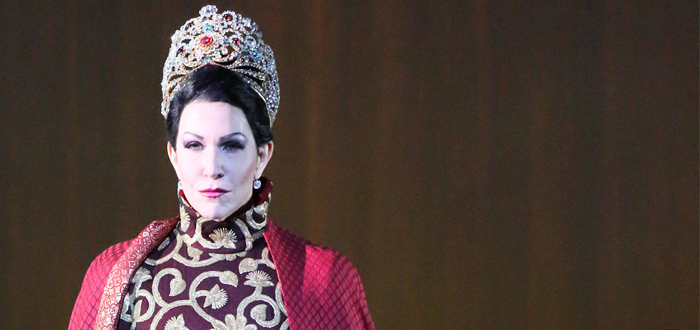
Rossini's Semiramide at Bayerische Staatsoper
ABOUT ROSSINI'S SEMIRAMIDE
On 3rd February 1823, Gioachino Rossini's great opera about Semiramis celebrated its premiere in Venice. The work became one of his greatest successes. Throughout the 19th Century Semiramide belonged to the permanent repertoire of the most important opera theatres in Europe. But in the course of the 19th century, the work more and more disappeared… The newest production in Germany is shown at Bayerische Staatsoper in 2017. It uses Ricordi’s critical edition.
Semiramide is based on a libretto by Voltaire. Serious Italian opera is the most strongly represented form with Rossini, comprising 18 out of his 39 musical works.
Gioachino Rossini ended his Italian stage career with the premiere of Semiramide. In the very same year, the composer moved to Paris. Semiramide is the final instalment of Rossini's operatic works. The advent of Romanticism had changed music and the world around him. “Rossini never wanted to represent reality like a Romantic. He wanted to filter reality through his poetics.” (M. Mariotti)
SYNOPSIS
Queen Semiramide is haunted by the ghosts of her past. Together with her lover Assur, she once murdered her husband King Nino; a deed which ever since has weighed heavily upon her. With her marriage to Arsace, she hopes her soul will at last find solace. Her love, however, is misplaced. Arsace not only loves another, he is also, as is later revealed, the son Semiramide and Nino believed to be dead. He is faced with a decision: should he avenge the death of his father – and thus become his mother's killer?
INTERVIEW
Daniel Menne, Dramaturg at Bayerische Staatsoper (Munich)
What prompted the Bavarian State Opera to revive this seldom-performed work by Rossini?
Rossini is still mainly regarded as the composer of light, amusing pieces like Il barbiere di Siviglia, La Cenerentola and Il turco in Italia. We are less apt to think of him as the author of serious works, which in his own day were esteemed at least as highly as his opera buffa creations.
One important objective in performing Semiramide at the Bavarian State Opera is to introduce our audiences to this other side of Rossini; and his last opera seria, where the composer’s wide-ranging experiences in Italian opera come together in exemplary fashion, was an obvious choice for this purpose. With good reason, Semiramide is often spoken of as the “summation” of Rossini’s output in the genre of opera seria.
What are the most important features of this opera?
Something especially exciting about Semiramide is that it contains large ensemble scenes – the Introduzione and the two act-finales – but the story is otherwise told exclusively through arias and duets, in other words, lightly scored forms. In particular, the four great duets of the three protagonists come at dramaturgically key moments in the plot, where Rossini lets his characters resolve their conflicts in a face-to-face confrontation. Then there is the opera’s basic theme, which is surely still relevant today: that of dealing with one’s own guilt.
Semiramide in this opera is by no means depicted as the unscrupulous, selfish warrior queen who will stop at nothing to ascend the Babylonian throne. Instead we encounter her as a woman who feels remorse for the deed – murdering her husband – that she committed 15 years earlier and is now attempting to atone for her guilt and put the past behind her. Whether this is possible is the question explored by the opera.
But, through the character of Semiramide’s son Arsace, the opera is also a consideration of the theme of revenge. Can that really help in seeking justice and peace, as the high priest in the opera believes? Or is there not a better alternative? Semiramide is much more topical than it may at first appear.
Have you yourself discovered anything new about Rossini through your engagement with this opera?
Approaching Rossini the opera seria composer is not so easy, because at first glance it seems that he is using the same musical means in his tragedies as in his comedies – that they both speak the same musical language. The light, often ironic tone that is immediately comprehensible to us in a Rossini opera buffa can seem initially disconcerting when the subject is tragic. If you look at this music more closely, however, you’ll discover that Rossini observes the action and the text with anything but indifference.
Maestro Michele Mariotti has put it this way: “Rossini depends on interpretation. His music’s ambiguity isn’t obvious. It is up to the interpreter to identify it.” And indeed, we are repeatedly confronted in the apparently serene moments of Semiramide with abysses as one otherwise encounters them only in Schubert.
Rossini is often underestimated. Under closer scrutiny, his music proves to be more complex than one has expected.
Photo: Wilfried Hösl